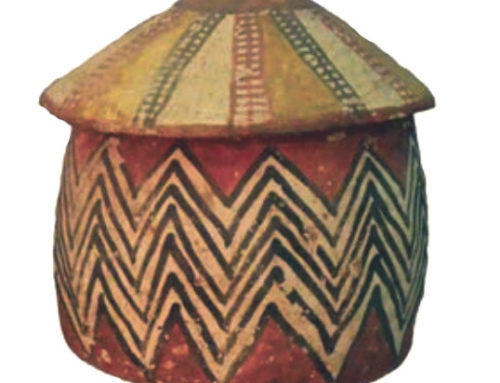I’m just feeling my way toward this at the moment, so please bear with me, but I feel like the public-facing articles I see fall into three categories which can usefully be considered separately. This is not a new development, but it’s one we might want to consider changing.
First category: serious history
In the first category are articles which report on some new discovery or conclusion about the Mediterranean or Europe. Here we have the recent discovery of a Roman fort under a British car park, or the interesting discussion of Stone Age baby bottles from Eastern Europe. It’s not only new discoveries; there are also posts announcing the publication of new Classics books, asking for help finding ancient texts online, etc. And there are people who simply post images of interesting or beautiful objects. (I apologize if you feel subtweeted here; I don’t have time this morning to go find the links for everything.)
Second category: history as metaphor
In the second category are articles where events or objects from classical Greece, the Roman Empire, or medieval Europe serve as metaphors for today’s events, often serving as political commentary. Thus we get quotes from Cicero’s Verrines about corruption in government, or discussions of whether Julius Caesar’s assassination has useful lessons for us as we struggle to maintain the power of the United States Congress.
Third category: history as humor
A third category treats objects and illustrations from the past as sources of humor. Scholars post amusing collections of medieval butts, or penises, or funny accounts of medieval people’s deaths. There are lots of classical Greek vases with pornographic images, and also images where someone falls awkwardly, or looks foolish.
A good idea?
As I said, I haven’t really thought this through completely, but I want to raise some issues around the second and third categories. One issue is that normalizing the use of Western metaphors for political activity seems to me to marginalize people living in today’s Europe and North America whose ancestors were not European. If there were lots of historians specializing in Chinese, Indian, and African history also contributing their own metaphors to this category, maybe this wouldn’t be a problem, but the racist history of the field means that there are far more Hellenists, Romanists, and medievalists than there are Africanists or specialists in early SW Asia.
And in any case, the use of these metaphors seems to tie us to an old imperialist mode of seeing ourselves as the heirs of the Roman Empire, naturally superior to other non-Roman people and thus naturally suited to govern, to colonize, to tell everybody else what to do and reap the financial rewards of that control. Perhaps because of this link, I often see parallels being made that really reflect the history of a generation ago, or a century ago, where historians today perhaps don’t really see Crassus or Livia in that way, but we still revert to the old layers of meaning in our modern political commentaries, as a sort of shared shorthand.
Another issue is that posting these funny images stripped of their context suggests that it is fine to do that – that it is fine to post images of people falling awkwardly, or pornography, and that people should laugh at those images. If it’s fine to do that with ancient and medieval images, does that imply that it is fine to do that with YouTube videos? To post sexts from your ex-wife on pornography sites? I’m concerned that what seems like just having a laugh tends to normalize behaviors we might not like in other contexts.
A wet blanket?
I realize that this all makes me seem like a scold and a nuisance. Everyone’s just having a good time. People are making legitimate political comparisons. Some of those ancient and medieval images were meant to be funny at the time, so why shouldn’t we still find them funny today? What’s the point of doing history at all, if we’re not going to use it to draw comparisons and serve up lessons for today’s politicians and voters?
And yet how are we to move forward with anti-racism, feminism, and globalization if we continue to promulgate these old attitudes without confronting and examining them? I welcome discussion. Comments are open, though they will be moderated and hateful ones will not be posted.




